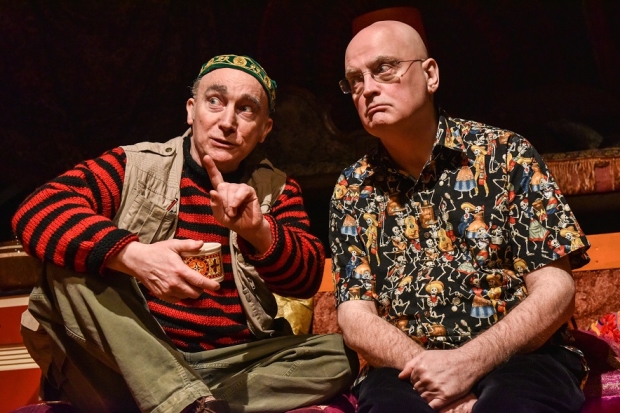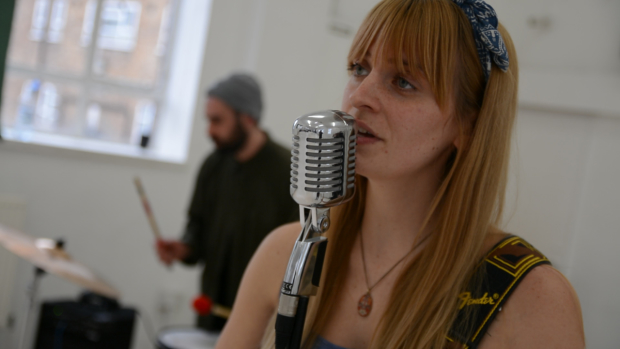Review: Electra (Bunker Theatre)
The classics have proven a veritable source for adaptation over the last few years, with Anne Carson storming the ramparts with a Ben Whishaw-led Bakkhai in 2015, while last year Zinnie Harris transformed the Oresteia into a meditation on mental health at the Edinburgh International Festival.
So John Ward's punk-infused Electra, telling the tragic story of the cursed daughter of the murdered king Agamemnon, leaps into a contemporary context with ease. We meet the titular princess, ostracised in the palace of Argos, where her mother Queen Clytemnestra is now married to second husband (and dubious claimant to the throne) Aegisthus. Desperate to see her father avenged, Electra awaits her absent brother Orestes' return when he will stir up revolt against the existing order.
Whereas Harris' version of the tale found the intimate personal crisis in a fractured family, Ward pushes his lens further, out into the wider world of Argos that exists beyond the walls of Aegisthus' palace. The piece is set in a city reeling with the memory of a war won, but not one it profited from. There is unrest, and insurrection, the likes of which today's audiences will recognise in parallels with the Arab Spring or even the London riots.
Lydia Larson imbues Electra with a steely reservation, pining for a long-lost brother and sense of hope, the two synonymous in her mind. Sian Martin brings a political tactility to the doomed Queen, every inch the modern politician.
Ward's script thrives when at its most adventurous, grappling with modern themes of disillusioned youth and how easily those in political power can see their private lives exploited by the public eye. At one point Clytemnestra, a woman constantly scrutinised, is interviewed live on TV – "It's a strange thing", she says "to live so publicly, in a world of men". The inclusion of two PR moguls is an equally canny decision. But in a lengthy piece that mixes secular politics with tracts about the pantheon of gods, the adventurousness sometimes gives way to orthodoxy, and protracted sermons to Apollo hamper the modern vision of the text.
It's David Hewson's musical direction, coupled with the neon glow of Sam Wilde's set, that pushes the piece on – Electra hums and throbs, the clatter of floor toms and bass guitar performed by the cast of seven adding a sense of foreboding and impending dread. The quieter passages of music, as haunting as any score from a David Lynch film, were equally enthralling, underscoring the mournful moments of Electra's life, particularly her forced exile from the palace.
The music, for all its splendour, also feels underused and its interplay with the text only coming in short, sharp bursts. When the show hits its stride it explodes with power, especially during the second act, but at over two and a half hours, some cuts wouldn't go amiss.
Electra runs at Bunker Theatre until 24 March.














